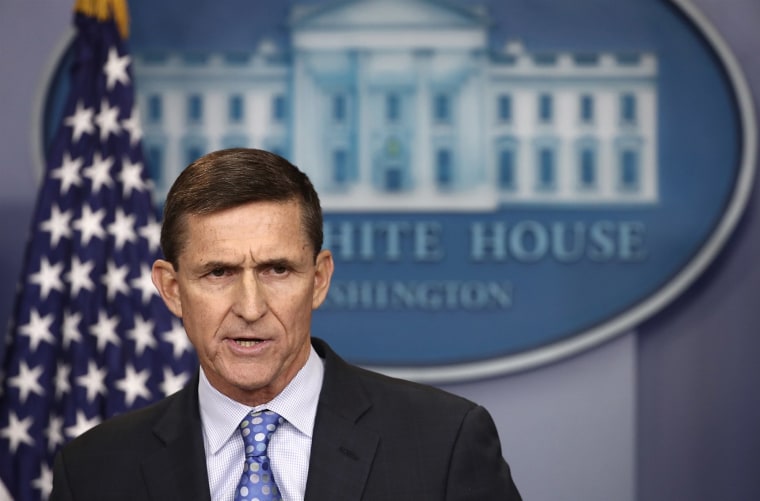Periodically, classified information about the Russia scandal and the investigation into the controversy has come to light. In every instance, more information has led to more disappointment on the right.
In early 2018, for example, the so-called "Nunes Memo" was supposed to be a blockbuster success for Donald Trump and his allies. Instead, it backfired. A few months later, the president was briefly obsessed with "Spygate," right up until Trump administration officials prepared a briefing for lawmakers that discredited the nonsensical claims.
More recently, Republicans had high hopes about an email former White House National Security Advisor Susan Rice wrote in January 2017, which ended up proving the opposite of what the GOP wanted to see.
And on Friday, Americans were able to review intercepted calls between former White House National Security Adviser Michael Flynn and former Russian Ambassador to the U.S., Sergey Kislyak. At that point, the Republican campaign to rehabilitate the former foreign agent's reputation fell into a ditch.
The detailed call summaries from December 2016, in the weeks before President Donald Trump took office, offer the clearest public evidence to date that Flynn indeed discussed sanctions specifically during their calls, despite Flynn telling both the FBI and Vice President Mike Pence that they did not.
A few weeks ago, Attorney General Bill Barr sat down with CBS News and addressed both the Flynn scandal and the Justice Department's willingness to intervene on his behalf. "[I]t is very typical, very common for the national security team of the incoming president to communicate with foreign leaders," Barr argued. "And that call, there was nothing wrong with it whatever. In fact, it was laudable. And it was nothing inconsistent with the Obama administration's policies."
When the attorney general made the comments, there was an obvious follow-up question: if Barr was right and there was nothing at all wrong with Flynn's communications, why did the retired general feel the need to lie about the calls to the FBI?
The answer, it turns out, is that Barr wasn't right. The Obama administration had imposed sanctions on Russia, among other penalties, as a result of the Putin government attacking U.S. elections. Flynn downplayed the significance of Moscow's election interference -- he told the Russian ambassador he saw the attacks as "cyber stuff" -- and did the one thing the White House said Flynn did not do: discuss the sanctions policy.
"Do not allow this [Obama] administration to box us in right now," Flynn told Kislyak.
So while Barr said Flynn's private comments were not "inconsistent with the Obama administration's policies," the transcript points in the opposite direction.
New York's Jon Chait added, "Flynn's discussions with Kislyak were not part of a criminal conspiracy. They were, however, part of a secret channel of communications, the premise of which was that the two parties had a secret common interest against the United States government. One word that might describe this relationship would be 'collusion.'"

